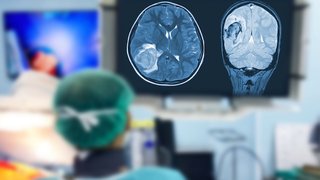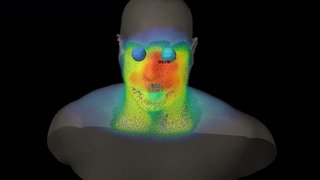
James Chen, Ph.D.
“My goal has always been to try to solve problems. Once we make a new discovery, we want to understand how things work and then move on to the next discovery.”
Professor of Molecular Biology and Director of the Center for Inflammation Research
Zhijian “James” Chen, Ph.D., has been on a lifelong journey of discovery, from his childhood in a small village in China, to his research in a molecular biology lab at UT Southwestern, to the pinnacle of the international scientific community. One of the world’s leading investigators in deciphering cell signaling, Dr. Chen was awarded the 2019 Breakthrough Prize in Life Sciences for his discovery of the DNA-sensing enzyme cGAS, which launches the body’s immune defense against infections.
Dr. Chen’s research on innate immunity has spanned RNA viruses, DNA viruses, autoimmune diseases, and cancer. In 2005, he identified the first mitochondrial protein known to be involved in immune defense against microbial infections. He called it MAVS (mitochondrial antiviral signaling), in honor of his favorite basketball team, the Dallas Mavericks. With his discovery of the enzyme cGAS, Dr. Chen has unlocked a century-old medical mystery: How does the immune system know when it’s under attack?
A Journey to Discovery
Dr. Chen grew up in an isolated village in China’s Fujian Province. He’d never seen a TV and didn’t know what science was, but his curiosity about nature and his intellect for solving complex problems manifested itself into a body of research at UT Southwestern that has the potential to change health care as we know it.
“cGAS is like a burglar alarm that is turned on when a danger is detected, and it sets off the body’s defense against viruses, bacteria, and parasites.”
Dr. James Chen

The cGAS Breakthrough
Dr. Chen was awarded the prestigious 2019 Breakthrough Prize in Life Sciences and the 2024 Albert Lasker Basic Medical Research Award, often called "America's Nobel," for identifying the cGAS (cyclic GMP-AMP synthase) enzyme. cGAS alerts the immune system when it senses DNA in the cell’s soupy interior, the cytoplasm, an area where DNA is not supposed to be. When the DNA is from an external pathogen, it triggers immunity. When derived from an internal source, such as DNA that leaks out of the host’s nucleus or mitochondria, it can set off autoimmunity. After sensing the DNA in the cytoplasm, cGAS produces a small molecule called cyclic GMP-AMP (cGAMP), which functions as the messenger to the body’s first line of defense, the innate immune system.
The body has two immune systems: an inborn, or innate, system that is activated when cells in the body initially encounter an invading pathogen, and an adaptive immune system that deploys specialized cells that execute a long-term response.
Dr. Chen identified cGAS and cGAMP in his lab at UT Southwestern. “This discovery has relevance in auto-immune diseases such as lupus and arthritis, and it’s very important for our body’s immune defense against cancer cells,” says Dr. Chen. “It’s also quite relevant to infectious diseases.”
“By understanding better how our immune system works, we will be in a much better position in harnessing our own immune system to fight all these diseases.”
Dr. James Chen

The Impact
The discovery of pathways by which cells recognize and react to infection can lead to the development of drugs designed to stimulate the body’s immune response to fight diseases. One example is immunotherapy, a revolutionary approach to treating cancer with substances such as monoclonal antibodies and small molecule drugs.
UT Southwestern is a global leader in research on innate immunity. Dr. Chen and his team continue to investigate the pathways uncovered by the cGAS enzyme. They hope to develop a detailed understanding of how they work in microbial infections, in autoimmune diseases like lupus, and in cancer. For autoimmune and inflammatory diseases, that direction might lead to creating inhibitors that block the pathway. For cancer, the goal would be to do the opposite: find ways to activate the pathways to enhance the immune system’s response to malignancies.
“The impact of Dr. Chen’s breakthrough discovery of the cGAS pathway is continuing to increase,” says Eric Olson, Ph.D., Chair of Molecular Biology and Director of the Hamon Center for Regenerative Science and Medicine. “It is now apparent that this signaling system relays all sorts of damage signals associated with major diseases, including autoimmune disease, cancer, and even Parkinson’s disease. It was impossible to anticipate where James’ work would lead, but now we’re seeing the unpredictable and powerful outcome of basic hypothesis-driven research.”










